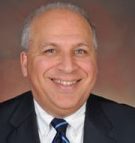The People Who Represent Both The Startup and The Money
By Dennis Clemente
If you were to choose, would you rather go to a show-and-tell demonstration or a legal talk on equity and term sheets? The latter could also get you funded, according to David Sorin, the head of the Venture Capital and Early Stage and Emerging Companies practice at McCarter & English.
At the Brooklyn Tech meetup held at the law firm’s office on midtown Park Avenue last November 12, Sorin talked about his role being on both sides of the entrepreneur and the money.
“We probably represent more companies than the money, because I think it’s more fun to represent entrepreneurs. But I also think it’s important to represent the investors, so I can understand the deals. It’s helpful to our investor-clients that we represent lots of companies,” he explained.
Sorin spoke clearly and concisely about the legal matters pertaining to early stage capital concerns, terms and conditions of equity rounds.
If you’re looking for a lawyer who likes spelling things out, Sorin does it very well. “What is valuation? The value of the company money before the investment made by the investors. That’s premoney + new money = post money,” he said.
“Entrepreneurs always invariably think their idea is worth more than it really is in the marketplace and so it’s really important to manage expectations,” he said.
Sorin pummels this thought for everyone to get it loud and clear. “Until you can implement and you can prove your concept a) works b) there’s a market for it and c) you can do it on profitable basis, you have to think about what your startup is really worth.”

Sorin believes that even if you just have only have an idea in your head, you have to think of all the legal and financial or fundraising aspects of your startup. He is also a certified public account.
Why? Because you’ll have to think about the longevity or future prospects of your startup. “It’s really bad if you go to your next round and you get a lower valuation. You may not need a second round depending on how capital-intensive your idea is, but chances are you will need that additional round to make you cash-flow positive and profitable.”
On dividends, he had this to say: “You’re not paying dividends. Every dime you get will be used to build the company.
“But your preferred investor will build into the transaction a dividends obligation that will accumulate every year. So once there’s an exit of some sort, the investor is due back what they invested plus the accumulated dividend.”
Sorin also tackled liquidation preference, board composition and other areas of negotiation between entrepreneurs and investors such as anti-dilution and redemption rights, the control of the company through voting and protective provisions, as well as the vesting of founders’ stock.
How can your board composition or selection affect you? If you own 60 percent of your company but there are five other board members, you only have one vote. They are five. It’s definitely something to think about.
In terms of sourcing capital, he agrees with the usual route—friends and family first; accelerators; government grants and programs; early stage venture funds; and even angel investors “who have fewer restrictions and conditions.” They run the gamut of high net-worth individuals who know your industry, and those who are professional investors.
Thinking of the future, he says your choice of an angel investor now may be in conflict later with an investor’s portfolio.
What can you do on Day 1 of your startup idea, even before you have product out there? “Start a cap table (but not a years-long plan). Create an equity investment plan. Get an accountant.” And even if investors tell you there’s no way to protect your business through intellectual property, Sorin thinks otherwise. “There’s licensing, contracts, trade secrets.”